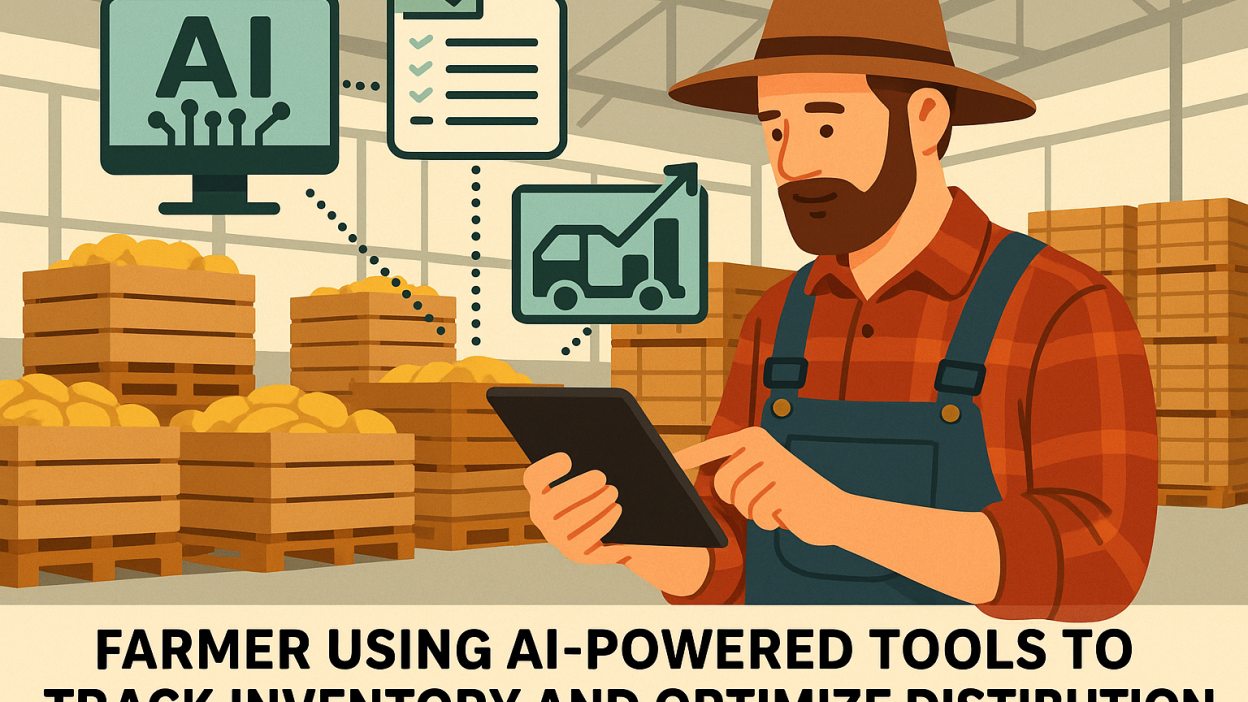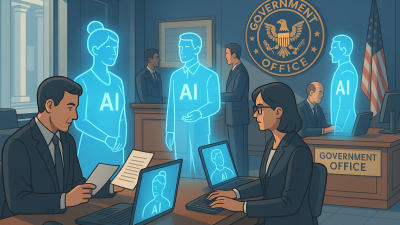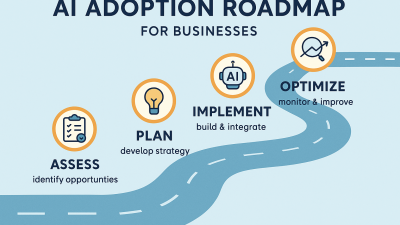Steph Curry’s Venture Firm Backs AI Startup to Transform Food Supply Chains
Food supply chains are the backbone of global commerce, connecting farms, distributors, retailers, and consumers. Yet, inefficiencies, wastage, and lack of transparency plague these networks, leading to billions in lost revenue annually and significant environmental impact. In this landscape, innovative solutions are critical. Enter an AI-driven startup focused on transforming food supply chains, recently backed by NBA star Steph Curry’s venture firm, marking a notable intersection between sports, technology, and sustainable innovation.
This investment highlights growing recognition that AI can solve real-world challenges, not only in tech-heavy industries but also in essential sectors like agriculture and food distribution. By leveraging machine learning, predictive analytics, and real-time data integration, this startup aims to optimize inventory, reduce waste, and enhance efficiencyacross the supply chain.
Beyond the technology, this move carries broader societal significance. Food insecurity, environmental sustainability, and equitable access to resources are pressing global issues. Investments that combine financial capital with technological innovation can drive meaningful change, demonstrating how high-profile figures like Steph Curry are influencing not just sports and culture, but also impact-driven entrepreneurship.
This article explores how AI is reshaping food supply chains, the implications of Steph Curry’s investment, the challenges and opportunities ahead, and the broader societal benefits of adopting cutting-edge technology in essential industries.
The State of Food Supply Chains
Modern food supply chains are complex, spanning multiple stakeholders, geographies, and logistical networks. While these systems are critical for delivering fresh produce and packaged goods, they face several persistent issues:
-
Wastage: According to the Food and Agriculture Organization (FAO), approximately 1.3 billion tons of food are wasted globally each year.
-
Inefficiency: Manual processes and fragmented data lead to delays, overstocking, and lost revenue.
-
Lack of Transparency: Limited real-time visibility causes challenges in tracking origin, quality, and spoilage, impacting consumer trust.
Traditional supply chains often rely on manual reporting and static forecasts, which are ill-equipped to handle dynamic market demands or unpredictable disruptions. Recent global events, including climate-induced supply shocks and the COVID-19 pandemic, have further emphasized the need for intelligent, adaptive systems.
This is where AI comes into play. By integrating machine learning algorithms, predictive analytics, and real-time tracking, AI can address inefficiencies, improve forecasting, reduce waste, and enhance decision-making. Steph Curry’s venture firm recognizes that solving these problems not only creates financial value but also drives social and environmental impact, aligning with the growing trend of purpose-driven investments.
How AI Transforms Food Supply Chains
AI technologies can revolutionize food supply chains across several dimensions:
Predictive Inventory Management
Machine learning models analyze historical sales data, seasonal trends, and market fluctuations to predict demand accurately, reducing overstocking and stockouts.
Real-Time Logistics Optimization
AI-driven route planning ensures faster deliveries, lower fuel consumption, and reduced spoilage, particularly critical for perishable goods.
Waste Reduction and Sustainability
By identifying bottlenecks and inefficiencies, AI helps minimize food waste, lower carbon footprints, and optimize resource allocation.
Enhanced Supplier and Retailer Coordination
Intelligent platforms facilitate better communication between farms, distributors, and retailers, improving traceability and quality control.
Case studies indicate that AI-driven supply chain solutions can cut operational costs by 15–25% while simultaneously reducing environmental impact. For example, startups integrating IoT sensors, AI analytics, and predictive models have helped retailers minimize food spoilage and streamline distribution, creating tangible benefits for both businesses and society.
Steph Curry’s Venture Firm and Its Strategic Impact
Steph Curry’s venture firm has a track record of investing in innovative, impact-oriented startups. Backing an AI-driven food supply chain startup reflects the firm’s commitment to leveraging capital for technological innovation and societal impact.
This investment brings several advantages:
-
Financial Support: $X million in capital accelerates product development, AI refinement, and market scaling.
-
Strategic Visibility: Association with a high-profile figure like Steph Curry can attract talent, partners, and additional investors.
-
Impact-Driven Branding: Aligns the startup with sustainability, social responsibility, and innovation narratives, appealing to mission-conscious stakeholders.
For the startup, this backing is not just financial—it’s also validation of their vision. High-profile investors signal confidence in both the technology and the team’s ability to deliver transformative solutions.
Challenges and Considerations
Despite AI’s promise, several challenges remain:
-
Data Quality: AI effectiveness depends on accurate, timely, and comprehensive data. Fragmented supply chains can hinder model accuracy.
-
Adoption Barriers: Small-scale farmers and suppliers may lack access to technology or digital literacy.
-
Regulatory Compliance: Food safety and data privacy regulations vary by region, requiring robust compliance mechanisms.
-
Cost and ROI: Implementing AI solutions requires upfront investment; demonstrating tangible returns is critical for adoption.
Addressing these challenges requires strategic collaboration, training programs, and flexible AI solutions that can scale across diverse geographies and stakeholders.
Broader Societal Impact
AI-enabled food supply chains can positively affect society in multiple ways:
-
Reducing Food Insecurity: Efficient distribution ensures that food reaches underserved communities.
-
Environmental Sustainability: Minimizing waste and optimizing logistics lowers carbon emissions.
-
Economic Opportunities: AI tools can create jobs in tech, logistics, and analytics while supporting small farmers and local businesses.
-
Consumer Trust: Enhanced traceability allows customers to verify the origin, quality, and freshness of food.
Steph Curry’s investment highlights how celebrity-backed ventures can amplify both technological and societal impact, bridging the gap between innovation, capital, and real-world problem-solving.
Steph Curry’s venture firm’s investment in an AI startup dedicated to transforming food supply chains represents a convergence of technology, sustainability, and impact-driven entrepreneurship. By leveraging AI, the startup addresses inefficiencies, reduces waste, and creates more equitable and resilient food networks.
This initiative demonstrates how strategic investments in technology can create tangible benefits for businesses, consumers, and society at large. From predictive analytics to real-time logistics optimization, AI offers a blueprint for a smarter, greener, and more reliable food ecosystem.
Ultimately, this move reflects a growing trend where impact-conscious investors like Steph Curry are shaping industries, driving innovation, and addressing pressing global challenges through technology and capital.
FAQs
1. What is the AI startup focusing on?
Optimizing food supply chains through AI-driven predictive analytics, real-time logistics, and waste reduction.
2. How does AI improve supply chain efficiency?
By analyzing data for demand forecasting, route optimization, and inventory management, reducing waste and delays.
3. Why is Steph Curry investing in food tech?
His firm focuses on impact-driven ventures that combine technology, sustainability, and societal benefits.
4. Can this AI solution help small farmers?
Yes, by providing insights, predictive tools, and access to optimized distribution networks.
5. What societal benefits can result from AI in supply chains?
Reduced food waste, lower carbon emissions, improved food security, and better consumer trust.
6. Are there challenges to AI adoption in food supply chains?
Yes—data quality, regulatory compliance, digital literacy, and upfront costs are key considerations.
7. How soon will the startup scale its AI solution?
The funding enables accelerated development and rollout, but exact timelines depend on market adoption and partnerships.
Stay informed on AI innovations transforming essential industries. Subscribe to our newsletter for insights on technology, sustainability, and impact-driven entrepreneurship.
Note: Logos and brand names are the property of their respective owners. This image is for illustrative purposes only and does not imply endorsement by the mentioned companies.



